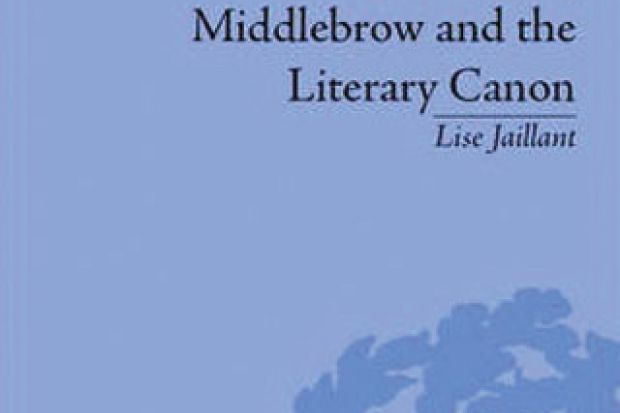Rebecca Bowler, postdoctoral research associate on the Dorothy Richardson Editions project, Keele University, is reading Lise Jaillant’s Modernism, Middlebrow and the Literary Canon (Pickering & Chatto, 2015). “This is a fascinating study of book production and the marketing of culture in the early 20th century, focusing on the worthy yet affordable Modern Library series. Jaillant’s discussion of this American series’ mix of highbrow literary Modernism and middlebrow popular fiction reminds us that these concepts were never fixed, and that our construction of the Modernist canon is a recent one.”

Jeremy Holmes, chief operating officer, Universities UK, is reading John Stubbs’ Donne: The Reformed Soul (Penguin, 2007). “You don’t have to be an impressionable teenager to be moved by Donne’s writing. His life, and his stage-managed death, were hugely dramatic, too. This biography charts his outsider’s route through the fierce religious and political controversies of the reigns of Elizabeth I, James I and Charles I to his conviction that everyone’s life is linked to everyone else’s. A compelling reminder that no man is an island.”

Richard Joyner, emeritus professor of chemistry, Nottingham Trent University, is reading Hitler’s Uranium Club: The Secret Recordings at Farm Hall (Springer, 2001), edited by Jeremy Bernstein. “German scientists discovered nuclear fission but did not develop the atomic bomb, and this is a key document in seeking to understand why they did not. In 1945, 10 senior German physicists were held at Farm Hall in Cambridgeshire and their conversations secretly recorded. This book gives English translations of what they said to each other, and invaluable but sometimes controversial commentary.”

Malcolm Kirkup, director of MBA programmes and educational innovation, University of Edinburgh, is reading Gerry Brown’s The Independent Director: The Non-Executive Director’s Guide to Effective Board Presence (Palgrave Macmillan, 2015). “Brown provides compelling practical guidance to improve the quality of corporate board performance, at a time when responsible business leadership is becoming ever more crucial. Through detailed cases, drawn from deep personal experience, he reviews lessons in a uniquely accessible and educational way.”

Peter J. Smith, reader in Renaissance literature, Nottingham Trent University, is reading Hilary Mantel’s The Assassination of Margaret Thatcher (Fourth Estate, 2014). “Ten short stories showcase Mantel’s compressed malevolence. Yarns, ordinary and everyday, turn into parables of human failure, disappointment and weakness. This is a dispiriting collection not because of deficiencies in the writing but because of its potency. Here is a particularly tatty boarding house: ‘Each odour, ineradicable for a decade, had burrowed into the limp chintz of the curtains and into the scarlet carpet that ran up the narrow stairs.’ Nasty, brutish and short but always evocative and shrewd.”

